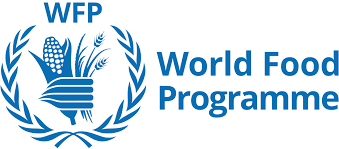In Kenya’s marginalized areas, cash transfers from humanitarian agencies like the World Food Program have become a lifeline, not just for individuals and families, but for entire local economies. The recent announcement that WFP will suspend cash transfers in Kenya due to a KES 5.7 bn funding gap threatens to disrupt these fragile ecosystems in ways that extend far beyond the immediate loss of financial aid.
Cash transfers provide direct relief to families by enabling them to purchase food, medicine, and basic necessities. But in rural Kenya, where formal employment opportunities are scarce and local markets operate on tight margins, this aid circulates through a wider web of economic activity. When a household receives cash, it often spends it locally, in small shops and agricultural inputs. This spending creates income for local traders, farmers, and service providers, who in turn spend that money, generating a multiplier effect. By cutting off cash transfers, the WFP is not only removing income for vulnerable families but potentially shrinking the entire local economy.
Regions like Turkana and Marsabit rely heavily on humanitarian assistance due to constant droughts, poor infrastructure, and limited access to markets. In these areas, cash transfers have become a critical buffer against food insecurity. For instance, a basic household in Turkana receiving KES 10,000 monthly in cash transfers may opt to spend roughly 40.0% on food from local markets, 30.0% on livestock care and veterinary services, and the rest on utilities. Local businesses and pastoralists depend on this steady demand to sustain their businesses. With the WFP’s announcement, local businesses face the prospect of dwindling customers, stock shortages, and even closures. Second, most of rural Kenya operates informally. Its economy is characterized by casual labourers and small-scale traders. Such cash transfers help sustain this informal sector. Without these funds, casual labor opportunities may vanish as demand dries up. Vendors who stock basic goods may no longer afford to replenish inventory. The decline in trade reduces income sources for thousands who rely on small-scale commerce to survive.
Actions that may be taken to mitigate the effects of this action by the World Food Program include strengthening local economic resilience. This can be achieved by investing in infrastructure, market access, and agricultural value chains. Second, mobilization of alternative sources of funding. Partnerships with private sector actors and exploring local financing mechanisms could provide more sustainable support. Supporting community-based savings and loan groups can provide an internal safety net when external aid falls short.
The World Food Program’s cash transfer cuts could cripple local economies, not just households. To avoid a deeper crisis, Kenya must strengthen local support systems and explore new ways to sustain vulnerable communities.
















